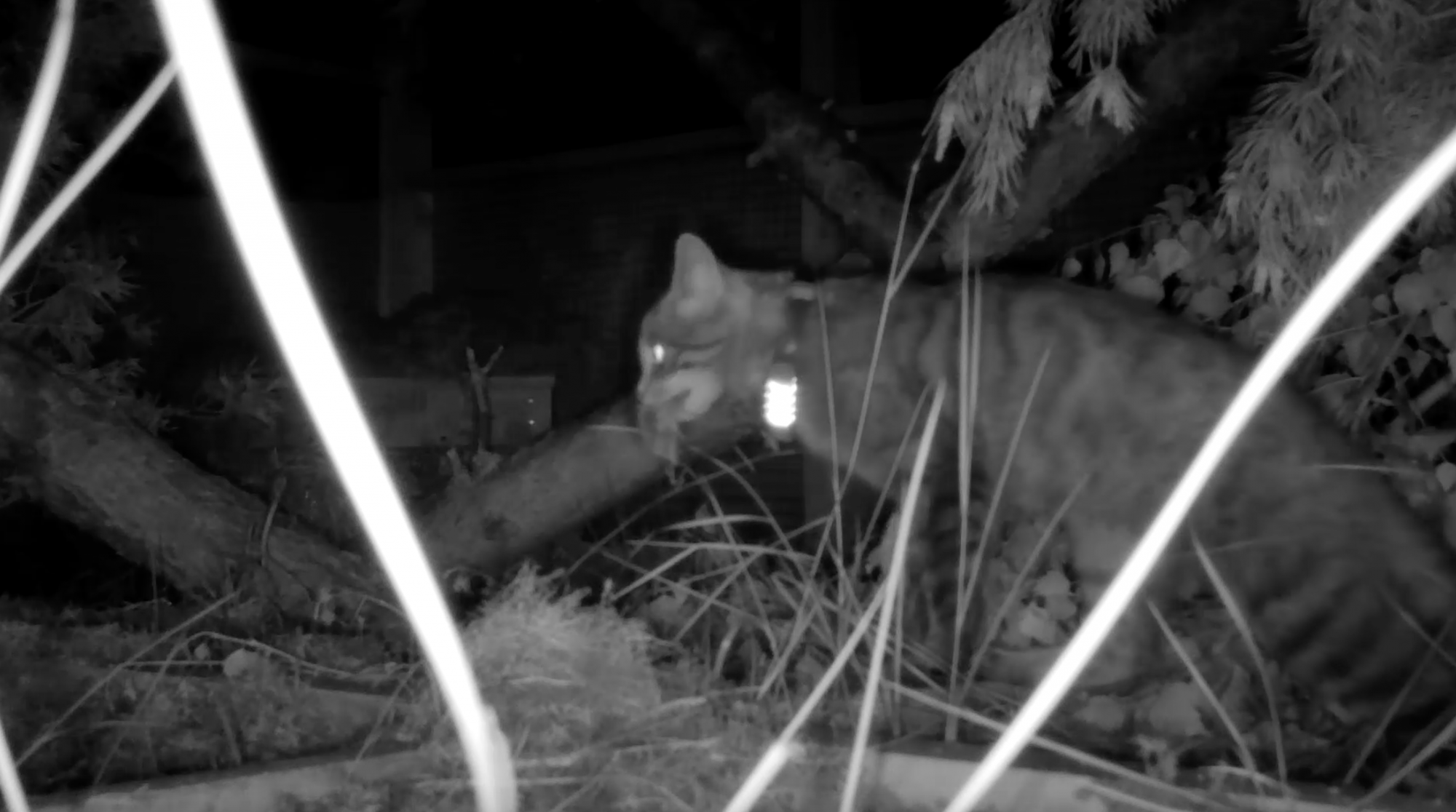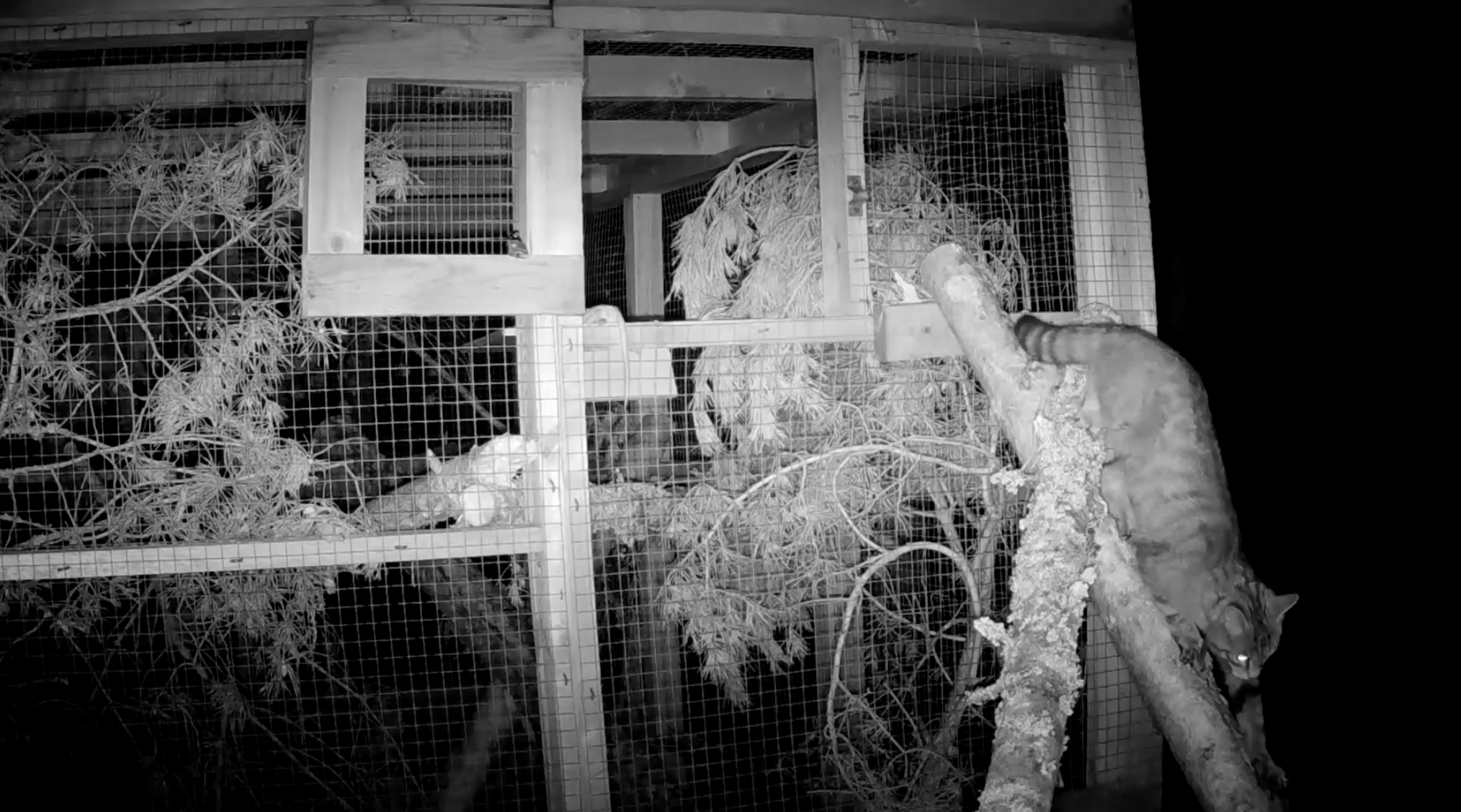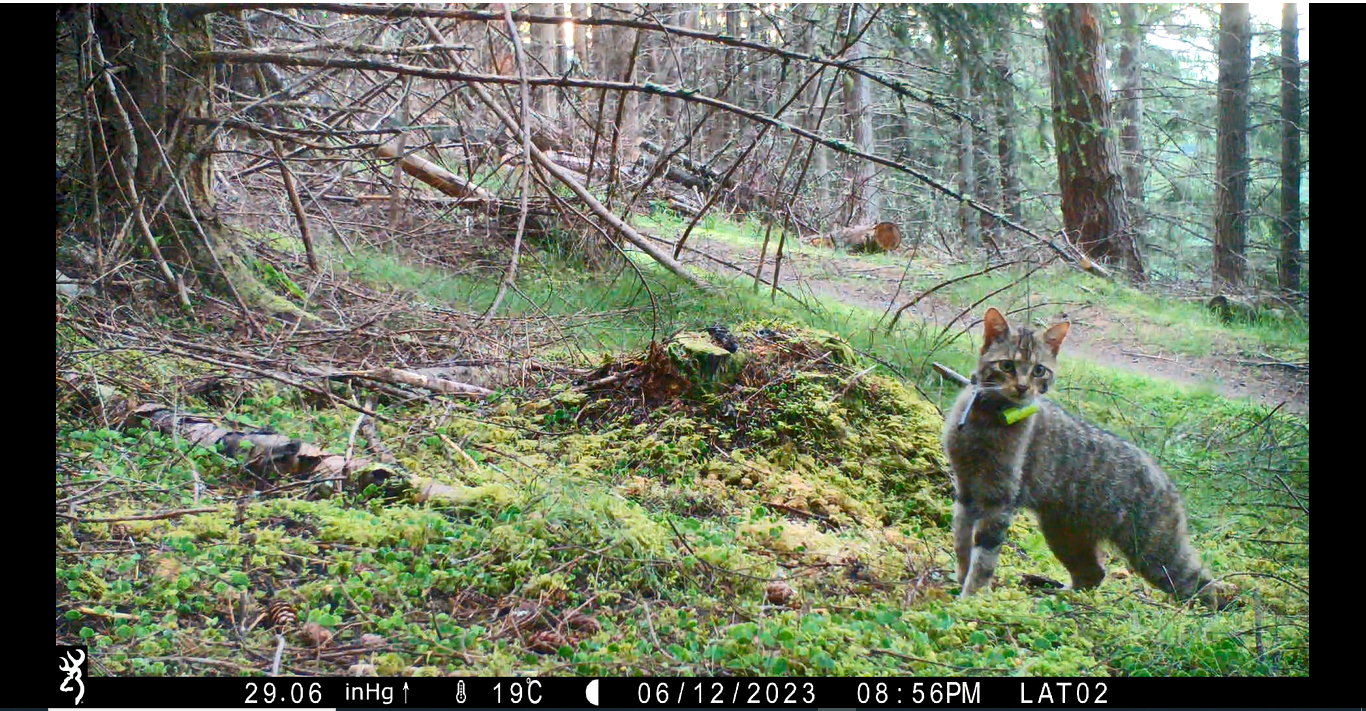

Read the latest update about the critically endangered Wildcats that were released into the Cairngorms Connect landscape this summer by Saving Wildcats.
The first round of wildcat releases in Scotland has been completed by Saving Wildcats, led by the Royal Zoological Society of Scotland (RZSS) in partnership with NatureScot, Forestry and Land Scotland (FLS), The Cairngorms National Park Authority, Norden’s Ark and Consejería de Sostenibilidad, Medio Ambiente y Economía Azul de la Junta de Andalucía.
Nineteen wildcats, which were released in small clusters in locations within the Cairngorms Connect landscape throughout the summer, have been tracked daily using GPS-radio collars.
By using tracking technology, researchers have been able to collect valuable data on what kind of areas the cats are inhabiting and how they move within that landscape.
Dr Keri Langridge, Saving Wildcats In-Situ Conservation Manager who is leading the tracking, said, “Most individuals have stayed relatively local to the release locations so far, while others have explored more widely across Badenoch and Strathspey. The cats are typically using a mixture of rough grassland, mixed woodland and riparian habitats, which provide prey such as mice and voles, as well as cover to hide from disturbance threats, including people and dogs.
“Camera traps which we have positioned across the release sites have also recorded videos of the animals exhibiting positive behaviours such as hunting prey.”
 Released Wildcat with a Shrew, filmed using a camera trap © Saving Wildcats
Released Wildcat with a Shrew, filmed using a camera trap © Saving Wildcats
Like other native wildlife, wildcats are best left undisturbed. The wildcats and their den sites are protected by law and it is an offence to deliberately or recklessly disturb a wildcat or its place of rest. Whilst it would be extremely rare to see one of these elusive animals in the wild, the public are being urged to refrain from sharing any sighting locations with others.
Dr Helen Senn, Saving Wildcats Project Lead and RZSS Head of Science and Conservation Programmes, said, “It is still very early in the process but the first release of wildcats into Britain has been a success so far. Life in the wild is full of risks and while most of the released wildcats are currently doing well, we must remember that these are now wild animals that are likely to face significant challenges as we move into winter, with extreme weather and a decline in natural prey expected.”
The Saving Wildcats field team have recorded one mortality since the beginning of this year’s releases.
Helen continued “It would be highly unusual for all the released wildcats to survive the first year, even with the project’s careful preparations.
“The field team were alerted to a potential mortality through daily monitoring of movement data recorded by the GPS collars. They immediately searched for the wildcat at the last recorded location and were able to recover the body. A post-mortem examination carried out by our expert veterinary team revealed the cat sadly died of peritonitis, which is an infection in the abdominal cavity.
“These are the first trial releases and, based on experience from similar projects around the world, further releases and many more years of conservation action will be required to increase the likelihood of saving this iconic species in Scotland.”
Wildcats were released into the landscape using an approach known as ‘soft-release’, which includes an acclimatisation period in the animal’s intended release habitat. This involved conservationists moving wildcats from the conservation breeding for release centre based at RZSS’s Highland Wildlife Park into enclosures within Cairngorms Connect temporarily before their eventual release.
 The moment one of the Wildcats left a pre-release enclosure in the Cairngorms Connect landscape, caught on a camera trap © Saving Wildcats
The moment one of the Wildcats left a pre-release enclosure in the Cairngorms Connect landscape, caught on a camera trap © Saving Wildcats
Studies show soft-release measures can help acclimatise individuals, reduce stress and aid in reducing post-release mortality. The decision to use a soft-release approach was made following extensive discussions with specialists from across the globe with significant experience in other conservation breeding for release projects.
A fundamental part of the Saving Wildcats project is engagement with landowners, land managers, ground staff and local communities in areas the released wildcats are inhabiting. The Saving Wildcats team is working closely with landowners who now have wildcats on their land, and the movement of these elusive animals.
Ellen Quinn-Gordon, Co-Op member pioneer for Newtonmore, Kingussie and Aviemore, said “It is so exciting that we are sharing our beautiful national park with wildcats again. Even though it is unlikely I will see one in the wild, knowing they are out there exploring their new home is fantastic. As one of our Local Co-op Community Fund causes, we are proud to know our members have contributed to such an important project."
In another fundamental step for the project, a total of 13 kittens have been born in the Saving Wildcats conservation breeding for release centre at RZSS’s Highland Wildlife Park this year. Once the kittens reach six-to-eight months old they will be transferred to pre-release enclosures to prepare for their release into the wild in summer 2024.
For more information visit savingwildcats.org.uk
 Released Wildcat © Saving Wildcats
Released Wildcat © Saving Wildcats
Conservationists in Scotland have kicked off a unique four-month ‘Easter egg hunt’ involving one of the UK’s rarest and most beautiful moths.
Five years of raptor data has been published by WildLand Cairngorms in a new report showing the positive impact of ecological restoration work.